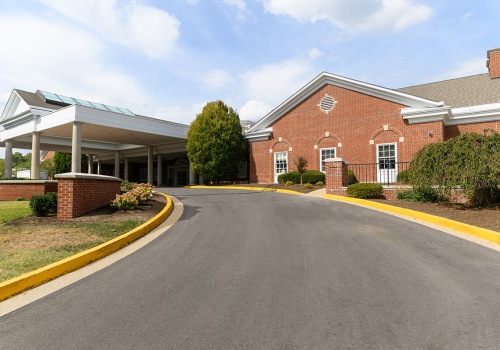As a healthcare professional in Richmond, Kentucky, I have witnessed firsthand the importance of health awareness in our community.
Health literacy
, or the ability to understand and use health information to make informed decisions, is a crucial aspect of overall well-being. However, many individuals in our city struggle with low health literacy, which can lead to poor health outcomes and increased healthcare costs.The Impact of Low Health Literacy
Low health literacy is a widespread issue in Richmond, Kentucky, and it affects individuals of all ages and backgrounds. According to a study by the National Assessment of Adult Literacy, only 12% of adults in Kentucky have proficient health literacy skills.This means that the majority of our population may struggle with understanding basic health information, such as medication instructions or nutrition labels. Low health literacy has significant consequences for individuals and our community as a whole. It can lead to medication errors, missed appointments, and a lack of preventive care. This, in turn, can result in poor health outcomes and increased healthcare costs. In fact, low health literacy is estimated to cost the U.
S. healthcare system between $106 billion and $238 billion annually.
The Role of Healthcare Providers
As healthcare providers, we have a responsibility to improve health literacy in our community. We must ensure that our patients have the knowledge and skills to make informed decisions about their health. This starts with effective communication. One way we can improve communication with our patients is by using plain language.This means avoiding medical jargon and using simple, easy-to-understand language when discussing health information. We should also take the time to explain complex medical terms and procedures in a way that our patients can understand. In addition to using plain language, we can also provide written materials in a clear and concise manner. This includes using larger font sizes, avoiding long paragraphs, and using visual aids to enhance understanding. We should also encourage our patients to ask questions and clarify any information they do not understand.
The Role of the Community
Improving health literacy in Richmond, Kentucky, is not solely the responsibility of healthcare providers.The entire community plays a role in promoting health awareness and literacy. This includes schools, workplaces, and community organizations. Schools can incorporate health education into their curriculum, teaching students about nutrition, exercise, and other important health topics. Employers can offer wellness programs and resources to their employees to promote healthy behaviors. Community organizations can also host events and workshops to educate individuals about various health topics. Furthermore, the media can play a significant role in promoting health literacy.
By providing accurate and easy-to-understand health information, the media can help individuals make informed decisions about their health.
Utilizing Technology
In today's digital age, technology can be a powerful tool for improving health literacy. There are numerous online resources available that provide reliable and easy-to-understand health information. Healthcare providers can also utilize telehealth services to reach patients who may have difficulty accessing traditional healthcare services. In addition, mobile apps can be used to track health information, such as medication schedules and appointments. These apps can also provide educational materials and resources to improve health literacy.The Importance of Collaboration
Improving health literacy in Richmond, Kentucky, requires collaboration between healthcare providers, community organizations, and individuals.By working together, we can create a culture of health awareness and empower individuals to take control of their own health. Collaboration also allows for the sharing of resources and ideas. For example, healthcare providers can partner with community organizations to host health fairs or workshops. This not only provides valuable information to the community but also helps to build relationships and trust between healthcare providers and individuals.
Conclusion
In conclusion, improving health literacy in Richmond, Kentucky, is crucial for the overall well-being of our community. By utilizing plain language, providing clear and concise written materials, utilizing technology, and promoting collaboration, we can make significant strides in improving health awareness and literacy.As healthcare professionals, it is our responsibility to ensure that our patients have the knowledge and skills to make informed decisions about their health. Let us work together to create a healthier and more informed community.







